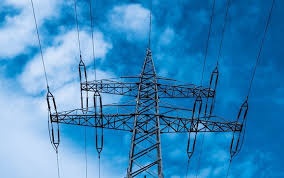Introduction
Nigeria’s power sector is undergoing steady reform, and transmission infrastructure remains the backbone of electricity delivery. To operate legally in this space, companies must obtain a Transmission Service Provider (TSP) License issued by the Nigerian Electricity Regulatory Commission (NERC).
This comprehensive guide explains how to obtain a Transmission Service Provider License in Nigeria, including official requirements, process, fees, timelines, and answers to common questions. All information is drawn directly from NERC’s regulations, handbooks, and official documents, making this your most reliable, up-to-date resource.
What is a Transmission Service Provider License?
A Transmission Service Provider (TSP) License authorises a company to:
-
Construct, own, operate, and maintain transmission facilities.
-
Provide non-discriminatory open access to the transmission network.
-
Ensure safe, reliable, and efficient electricity wheeling between generators, distribution companies, and eligible customers.
-
Comply with the NERC Grid Code and Market Rules.
Traditionally, the Transmission Company of Nigeria (TCN) has held this license, but NERC’s framework allows other qualified investors and companies to apply.
Legal Framework for Transmission Licensing in Nigeria
The TSP license process is governed by these key regulations:
-
Electric Power Sector Reform (EPSR) Act, 2005
-
NERC Application for Licenses Regulations, 2010
-
NERC Requirements for Licenses (detailed documentation list)
-
NERC License & Operating Fees Regulations, 2010
-
The Nigerian Grid Code
Who Can Apply?
Any Nigerian-incorporated company with the technical, financial, and legal capacity to build and operate transmission facilities may apply. Foreign investors typically apply through a Special Purpose Vehicle (SPV) incorporated in Nigeria.
Step-by-Step Process of Obtaining a TSP License
Here is a clear, structured roadmap based on NERC’s official process:
1. Pre-Application Preparation
-
Incorporate your company with CAC.
-
Gather corporate records, tax clearance, and audited accounts.
-
Prepare a detailed business plan and financial model.
2. Technical and Environmental Readiness
-
Carry out grid studies (load flow, fault, and stability analysis).
-
Prepare single-line diagrams, system protection and SCADA design.
-
Secure Environmental Impact Assessment (EIA) approval.
3. Complete the NERC Application Form
-
Download and fill out the official NERC license application form.
-
Attach supporting documents (see checklist below).
4. Pay the Required Fees
-
Application fees and processing charges are payable as per NERC License & Operating Fees Regulations.
5. Submit to NERC
-
Submit the complete package (cover letter, forms, documents, and proof of payment) to NERC’s Licensing Unit.
6. Completeness Check
-
NERC reviews for completeness. Missing documents must be rectified before processing begins.
7. Public Consultation
-
NERC may publish your application for stakeholder comments.
8. Technical & Financial Assessment
-
NERC evaluates the company’s technical capacity, funding, and Grid Code compliance.
9. Decision and Issuance
-
NERC issues the license (with conditions) if requirements are met.
10. Post-Licensing Compliance
-
Pay annual operating fees, file compliance reports, and follow Grid Code obligations.
Required Documents (Checklist)
When applying, prepare the following:
Corporate Documents
-
CAC Incorporation Certificate & CAC filings.
-
Memorandum & Articles of Association.
-
List of directors, company secretary, and identification.
Financial Documents
-
Audited accounts (3 years).
-
Business plan and financial model.
-
Bank/funding commitments.
Technical Documents
-
Grid impact studies and system designs.
-
Equipment specifications and network plans.
-
O&M strategy and staff CVs.
Environmental & Legal
-
Environmental Impact Assessment (EIA) approval.
-
Land/ROW ownership or lease evidence.
-
Draft Transmission Service Agreements.
Fees & Costs
NERC’s License & Operating Fees Regulations (2010) set the charges. These include:
| Fee Type | Stage | Notes |
|---|---|---|
| Application Fee | Submission | Paid once |
| Processing Fee | Submission | Covers NERC review |
| License Issuance Fee | Approval | Payable upon grant |
| Annual Operating Fee | Yearly | Regulatory compliance |
| Other Charges | Case-by-case | E.g., public consultation, inspections |
Tip: Always confirm the latest figures directly from NERC’s official fee schedule before payment.
Timeline
While NERC targets a 6-month decision window, the actual timeline depends on:
-
Completeness of your application.
-
Complexity of your project.
-
Environmental and stakeholder issues.
In practice, expect 6–12 months.
Common Pitfalls to Avoid
-
Submitting incomplete documentation.
-
Weak technical studies not aligned with Grid Code.
-
Lack of clear funding commitments.
-
Overlooking community engagement and ROW approvals.
What Happens After Getting the License?
Once issued, you must:
-
Review and comply with all license conditions.
-
Register with NERC’s compliance portal.
-
Coordinate with the System Operator for commissioning.
-
Submit annual reports and pay operating fees.
FAQs About TSP Licensing in Nigeria
Q1: Who issues TSP licenses in Nigeria?
A: The Nigerian Electricity Regulatory Commission (NERC).
Q2: How long does the process take?
A: Typically 6–12 months depending on completeness and complexity.
Q3: Can foreign companies apply?
A: Yes, but through a Nigerian-registered company (SPV).
Q4: Is TCN the only TSP?
A: No. TCN holds a license, but other qualified entities may apply.
Q5: How much does it cost?
A: Fees are defined by NERC’s Fee Regulations; check the latest schedule.
Common Misconceptions
“Licensing is just a formality.”
Truth: It involves a rigorous technical and financial review.
“Any company can get a license easily.”
Truth: Only technically competent and financially solid firms succeed.
“Once licensed, compliance is optional.”
Truth: Continuous compliance with Grid Code and NERC rules is mandatory.
Final Thoughts
Obtaining a Transmission Service Provider License in Nigeria is a structured but demanding process. Companies must demonstrate legal, financial, and technical strength while meeting environmental and regulatory standards.
Done right, a TSP license unlocks opportunities to participate in Nigeria’s electricity market, build private transmission infrastructure, and contribute to grid stability.
For the latest forms, fee schedules, and requirements, always consult NERC’s official website.


